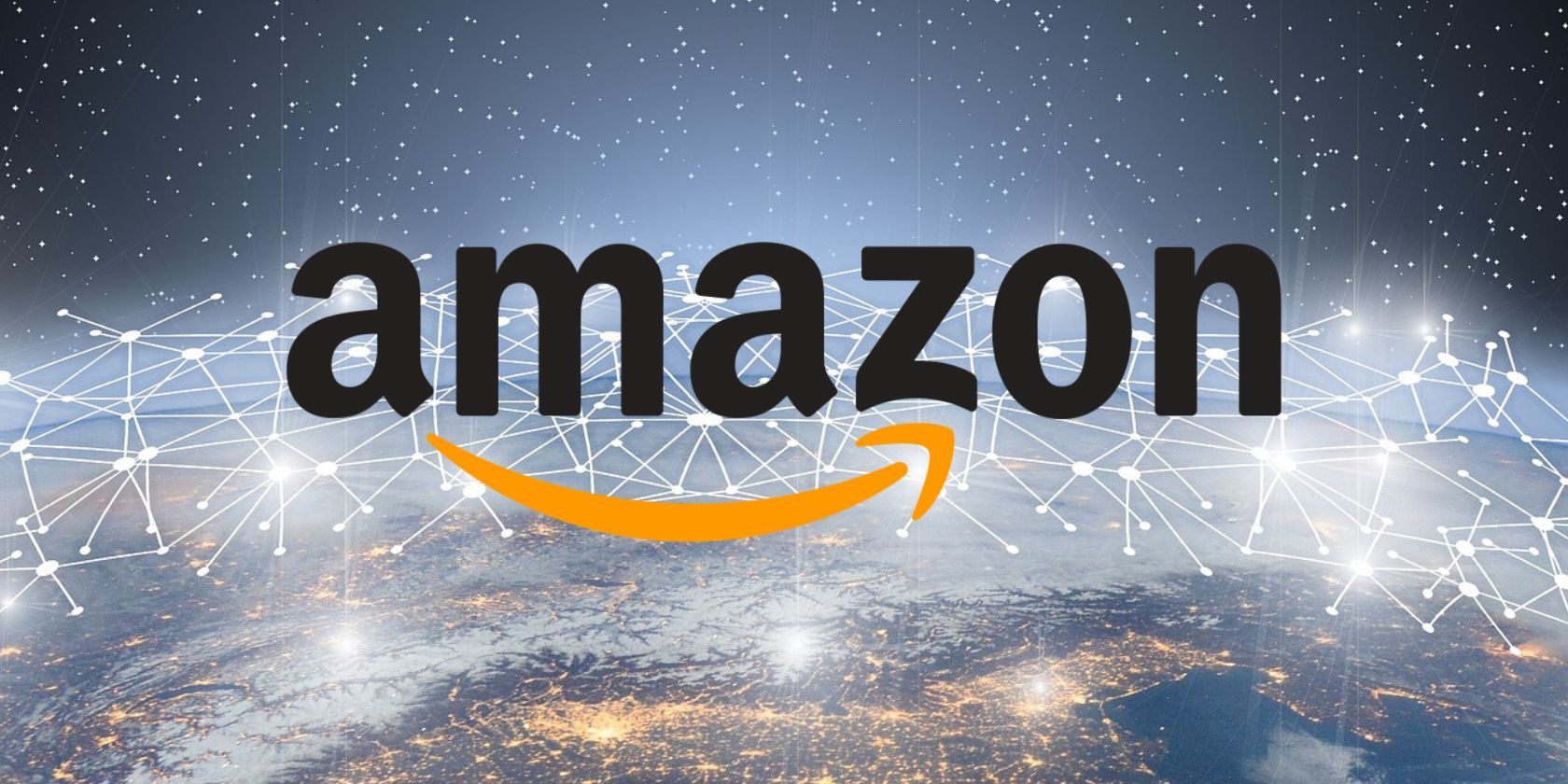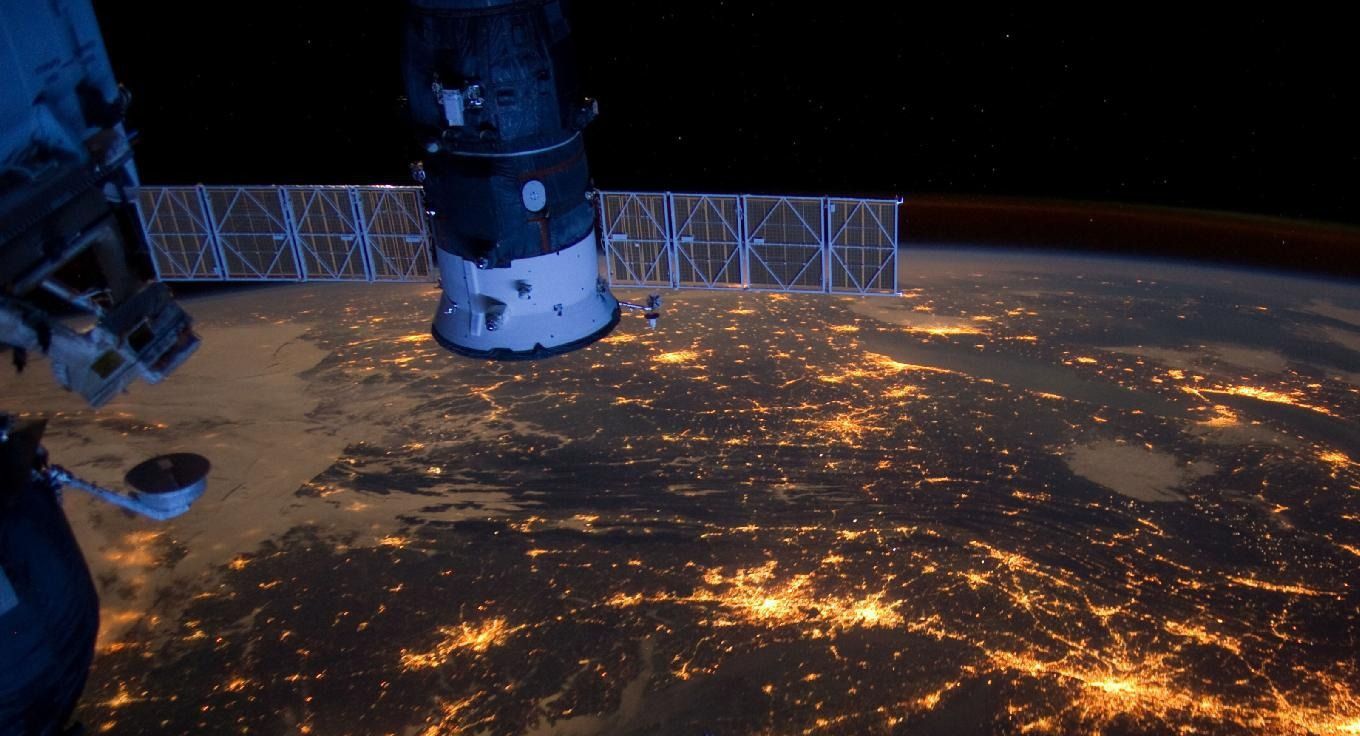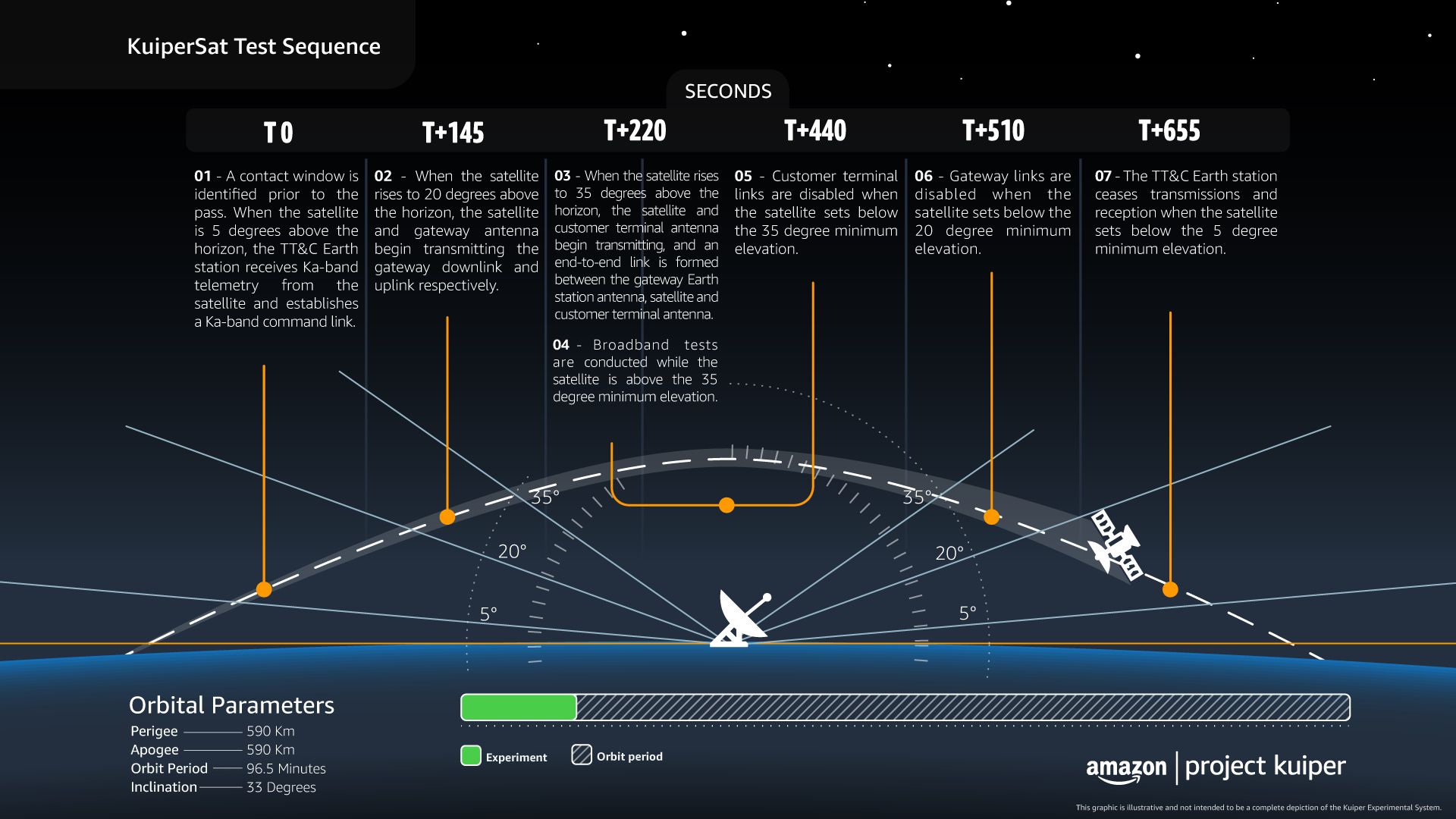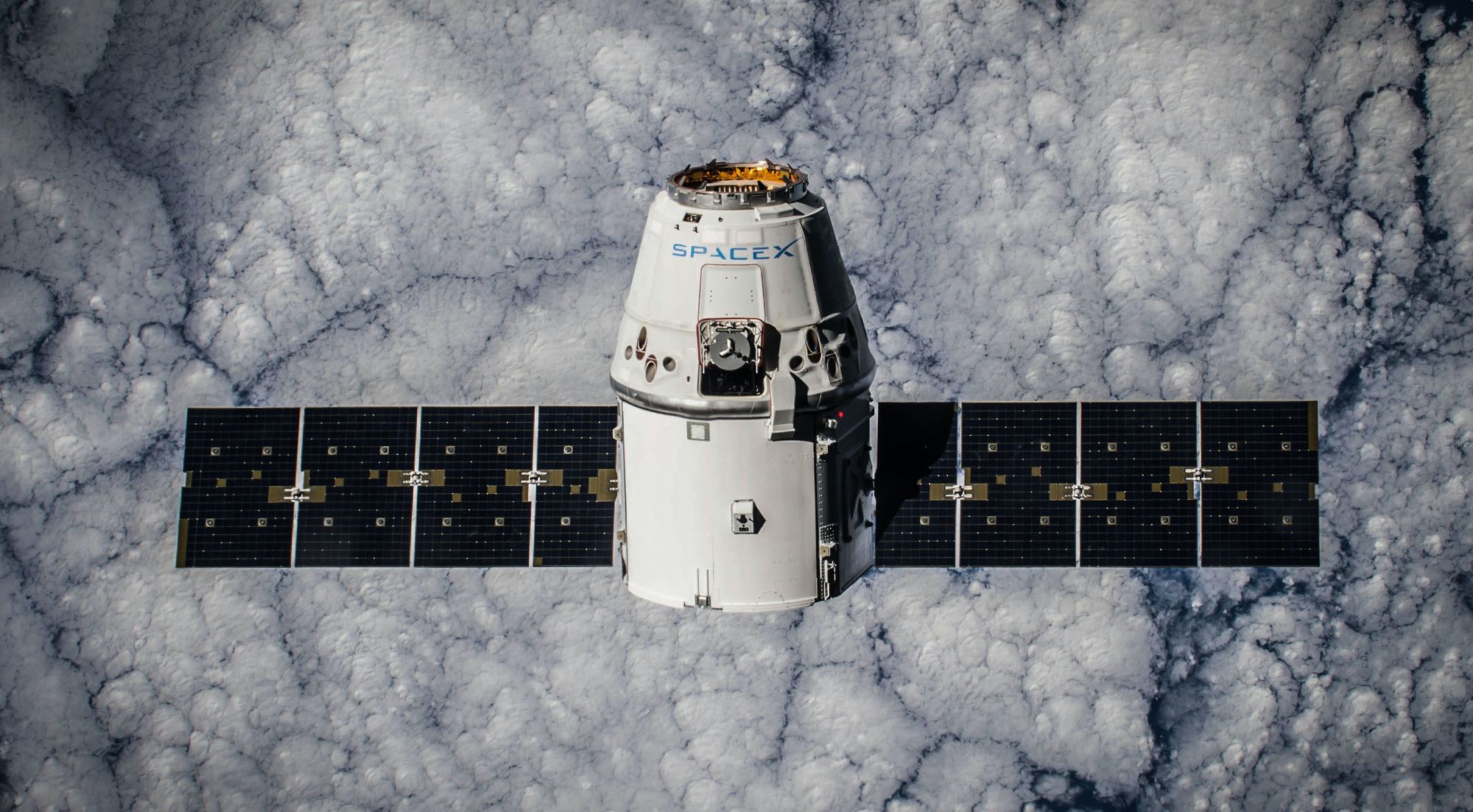In 2019, Starlink began launching satellites into space to provide people with more accessible broadband. The network is owned by Elon Musk and operated by SpaceX, another of the billionaire's companies. But Musk isn't the only one delving into this field. Amazon is also developing a satellite broadband service, currently known as Project Kuiper. So, what's Project Kuiper all about, and is it better than Starlink?
What Is Project Kuiper?
Kuiper Systems LLC, a subsidiary of Amazon, launched project Kuiper. Kuiper Systems LLC was launched in 2019, the same year Amazon announced Project Kuiper, and is headed up by Rajeev Badyal, a former vice president of SpaceX's Starlink—who was fired in 2018.
The goal of Project Kuiper is to make broadband more accessible and affordable to "unserved and underserved communities around the world," as stated in an Amazon blog post. Project Kuiper will launch 3,236 satellites into low Earth orbit (LEO) to form a full worldwide constellation. Kuiper Systems LLC and Amazon also aim to provide fast broadband with low latency.
It has been confirmed that Project Kuiper will launch for Indian residents and those living in the United States. An official list of countries has not yet been released by Amazon, though it is suspected that Asia-Pacific countries will be one of the project's focal locations. Kuiper will be available for households, hospitals, schools, and businesses alike.
In 2020, Amazon committed to investing over $10 billion into Project Kuiper, which will also involve the construction of on-ground communication bases and customer terminals. Amazon currently uses a large research base in Washington for research and development.
But Project Kuiper isn't totally isolated from other parts of Amazon. Amazon Web Services, for instance, will be used to provide the program with networking and infrastructure.
In 2021, the US Federal Communications Commission (FCC) approved Project Kuiper's plans to launch 3,236 satellites in low earth orbit. This stood as the green light for Amazon to go ahead and kick the project into action.
Amazon is working with a variety of launch services to facilitate the launch of these satellites, including the Vulcan Centaur rocket of the United Launch Alliance (ULA), Arianespace's Ariane 6 rocket, and Blue Origin's New Glenn rocket (founded by Jeff Bezos).
Project Kuiper Controversy
Amazon is no stranger to criticism and controversy, and this trend has certainly bled into Project Kuiper. For example, in 2019, it was reported by numerous news sites that Amazon had allegedly asked the Federal Communications Commission (FCC) to waive some regulations that other companies like SpaceX had to follow.
Amazon was supposedly seeking these waivers to dodge regulations surrounding interference concerns and to avoid having to provide the US state of Alaska with broadband, as its location was apparently too difficult to serve.
When Will Project Kuiper Satellites Launch?
There's lots of talk surrounding Project Kuiper, but its satellite system is nearly close to completion in 2022. So, when will Project Kuiper be operational, and what needs to be done first?
Before Amazon can build the official Project Kuiper constellation, prototype satellites must be launched to test the hardware and its capabilities. Amazon is set to launch its first set of prototypes in early 2023, though no official launch dates have been announced.
But we know that the first prototypes—Kuipersat-1 and Kuipersat-2—will be launched using the ULA's Vulcan Centaur rocket from the well-known Cape Canaveral Space Force Station in Florida. The construction of these prototypes should be completed in late 2022. ULA alone is set to facilitate 47 Project Kuiper launches, as stated in another Amazon blog post.
What's more, Project Kuiper's staff have a lot of work to do if they want to launch a full constellation. Building 3,236 satellites will be no small feat, and multiple satellites will need to be constructed to meet Amazon's goal of launching half of the constellation by mid-2026. So there's no doubt that the venture is a massive undertaking for the Project Kuiper team.
With half of the Kuiper satellites set to be launched by 2026, Amazon must launch its full constellation by 2029 in accordance with its FCC license. But there's no knowing what issues may cause delays in such a huge project.
There's one more question: is Project Kuiper better than Starlink?
Project Kuiper vs. Starlink
There's no doubt that Project Kuiper will compete with Elon Musk's Starlink. Both Project Kuiper and Starlink are concerned with providing fast internet to a range of countries, but there are various differences between the two ventures.
Firstly, Starlink is launching far more satellites than Amazon. The entire Starlink constellation is set to consist of 12,000 satellites (approved by the FCC), while Project Kuiper will consist of just 3,236.
More satellites hint at greater coverage in more locations, suggesting that Starlink will be more accessible. But the jury will be out on this one for some time. But Starlink and Project Kuiper's constellations will all exist in low Earth orbit, though the orbital height of the two constellations is set to differ by around 30-50 miles.
We're unable to compare the price of Starlink and Project Kuiper broadband at the moment, as the latter has not released a price list. But if Kuiper is close to Starlink in price (a $99 deposit, $599 setup fee, and a $110 monthly bill), then it's certain that both will be expensive options compared to other broadband services. Unfortunately, the hardware of the hubs also cannot be compared, as Kuiper has not yet released any information on this.
Amazon has claimed that it will work to make its broadband service as affordable as possible, but we don't know what this means in terms of concrete prices. But the company has released affordable tech products in the past, such as the Echo, so the Project Kuiper fees may be surprisingly low.
In terms of speed, we know that Starlink's download speeds generally range between 50-200Mbps, with premium members allegedly being offered up to 500Mbps. Amazon, on the other hand, has stated that Project Kuiper will offer a maximum speed of 400Mbps. So, while Starlink seems to take the cake here, both services seem to be able to provide incredibly fast broadband.
Overall, it's too early to say whether Project Kuiper will be better than Starlink. Starlink's satellite network is by no means complete at the time of writing, and Amazon's Project Kuiper hasn't even launched their prototype satellites yet, so full comparisons are still to come.
Amazon Is Taking On Starlink—But Will It Succeed?
At the time of writing, it's tough to compare the quality, pricing, and accessibility of these two services. While Starlink has already launched thousands of satellites, its constellation has a way to go, and Project Kuiper is still in its early stages. So we may have to wait another few years, if not longer, to fully compare these two broadband providers.




